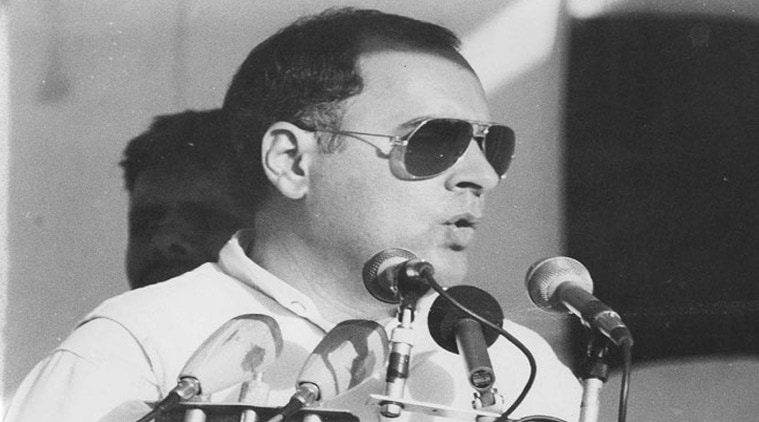 Rajiv Gandhi was assassinated on the night of May 21, 1991 at Sriperumbudur in Tamil Nadu. (files)
Rajiv Gandhi was assassinated on the night of May 21, 1991 at Sriperumbudur in Tamil Nadu. (files)
Opposing the release of seven people convicted in Rajiv Gandhi assassination case, the Centre has told the Tamil Nadu government that as four convicts were foreigners, freeing them would “set a very dangerous precedent and lead to international ramifications by other such criminals in the future”.
The Centre’s comment – mentioned in a letter dated April 2018 in response to the Tamil Nadu government’s proposal to remit sentences of the seven convicts — was on Friday placed before a three-judge Supreme Court bench. The bench of Justices Ranjan Gogoi, Navin Sinha and K M Joseph has taken the letter on record.
In March 2016, the Tamil Nadu government had proposed to release the convicts — V Sridharan, T Suthendraraja, A G Perarivalan, Jayakumar, Robert Payas, Ravichandran and Nalini — and sought the Centre’s views on the issue. The SC had then asked the Centre to decide on the state government’s proposal.
In its response, the Centre maintained that 16 innocent lives were lost in the blast and many suffered gruesome injuries. The assassination showed “exceptional depravity,” including the use of a woman as a human bomb, the letter said.
“The brutal act brought the Indian democratic process to a grinding halt in as much as the general elections to the Lok Sabha and Assemblies in some states had to be postponed,” it said.
The Centre in the letter also said that it had discussed the matter with the CBI, which had probed the case, and added that the agency was also opposed to releasing the seven convicts.
In February 2014, the Tamil Nadu government had proposed to remit the sentences of the seven convicts and release them. The Centre had challenged this in the Supreme Court, which held that the state could do so only with Centre’s concurrence.